By Mark Carlson
With all it had going for it, how did Germany manage to lose World War II? There are many answers to this deceptively simple question, including the obvious one that the Allies had the technical and industrial advantage. Radar, sonar, convoys, mass production, code-breaking, and a dozen other factors undoubtedly contributed to the Allied victory. But even these did not guarantee victory over the Axis powers. In fact, Germany’s defeat came down to one man: Adolf Hitler.
In his book Inside the Third Reich, Albert Speer, the Nazi Minister of Armaments, stated “Adolf Hitler had once said, ‘The loser of this war will be the side that makes the greatest blunders.’” Hitler, by forcing a worsening succession of wrongheaded decisions, made that prediction come true. While this article is purely opinion, its conclusions are based on more than 20 years of evaluation of history. These may be considered the direct causes of the defeat of Nazi Germany.
The Fuhrer hated the wrong enemy. Hitler was determined to use his total domination over Germany to conquer, control, and cleanse the world of all the elements he so hated. The taproot of his very being was his xenophobic hatred of Jews and Communists. While he believed both groups were subhuman, filthy, godless, and stupid, Hitler blamed them for the loss of the Great War, and more importantly, the racial and ideological poisoning of Europe. His goals of conquering and dominating Europe and Western Asia were not ends in themselves but a means to eradicate the Jews and Communists from the face of the Earth.
In Germany, Jews had a significant and valuable role in the economy, industry, and social structure. Through the First Reich, or empire, under Bismarck and the Second under Kaiser Wilhelm, Jews served in government and the military with as much zeal and patriotism as any pure Aryan. For Hitler, hatred of the Jews was more than a purely religious ideology; it was a maniacal hatred that went beyond mere obsession. It was the dominant factor in his political and personal thinking.
Germany’s defeat in 1918 sowed the seeds of national hatred of Jews and Bolsheviks. With the rapidly rising inflation and unemployment in Germany after the signing of the Treaty of Versailles in 1919, the people needed a scapegoat and a leader. Hitler provided both. The former army corporal Hitler found it easy to convince a growing element of the population that the Jews were responsible for losing the war and the subsequent national depression. But by making the persecution of the Jewish race the goal of all his later political and military objectives, Hitler lost sight of the national goal of making Germany the dominant European continental power. In fact, if he had not been determined to eradicate the Jews from Germany and Europe, he would have found them a powerful economic and social ally.
It is significant that the original NSDAP, or National Socialist German Workers Party, was not anti-Semitic. The NSDAP was concerned with the reform of the government and giving more control of industry to the people. But with Hitler’s growing influence, hatred of Jews became more ingrained until it was the core value of the NSDAP and later Nazi Party.
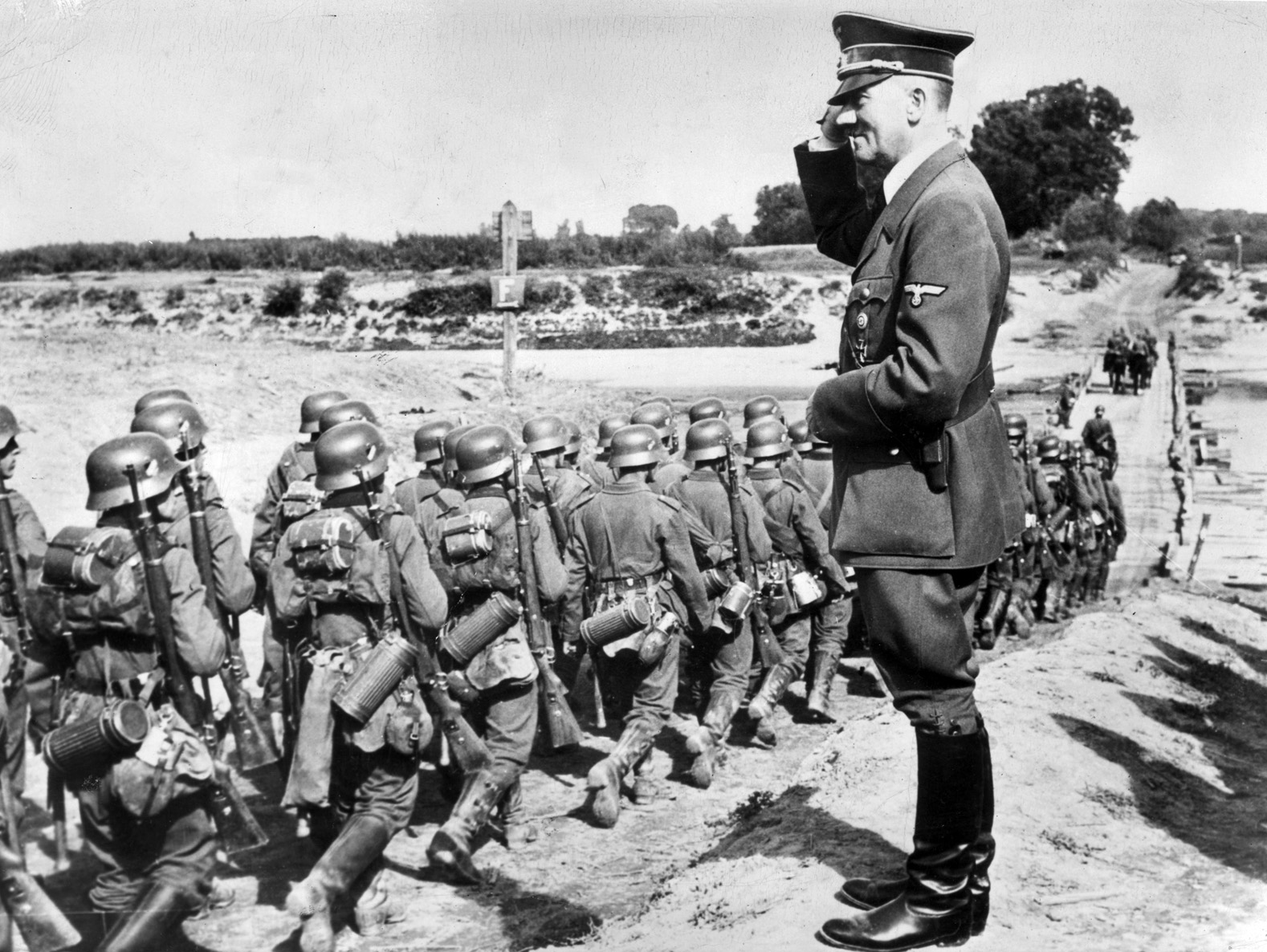
Hitler went to war too soon. He believed he was the supreme general, bolstered by his Iron Cross for service in the trenches of the Great War. He had revered men like Field Marshal Paul von Hindenburg and General Erich Ludendorff, but he refused to take the advice of any man with field marshal rank. His successes of marching into the Rhineland, annexing Austria, and the bloodless victory over Czechoslovakia were all the proof he needed that he was the superior field commander. But those victories were largely due to his political skill and the wishes of other national leaders to avoid another war. British Prime Minister Neville Chamberlin’s appeasement allowed Hitler to double the size of the German Reich without firing a shot, or indeed having much of an army with which to fight. In fact, Germany was far from being able to conquer Europe.
As far back as 1936, Grand Admiral Erich Raeder, commander of the Kriegsmarine, was in the process of building a powerful fleet of surface raiders to destroy enemy naval and merchant ships. He had been assured by Hitler that there would be no war with Great Britain until at least 1944, giving Raeder time to launch more than a dozen battleships and cruisers. But Hitler jumped the gun and planned his invasion of Poland in the summer of 1939, before more than six of the raiders were built. The German navy was not ready to take on the Royal Navy.
Hitler turned potential allies into enemies. After Germany conquered Poland in three weeks, Hitler began unleashing the SS Einsatzgruppen to begin the enslavement of the Poles and Jews. This action did not have any military objective. It was the first major step in his goal of eradicating the Jews from Europe. His non-aggression pact with the Soviet Union and Premier Josef Stalin had never been more than a stalling tactic to divide Poland with the Soviet Union, which was more than happy to accept a huge addition to the Motherland. Stalin was too busy with the Finns and the Baltic States to be worried about his fellow dictator’s aims.
The invasion of Poland was the spark that led to total war. The global community might have tolerated or even accepted Hitler’s blatant takeover of countries with ethnic German residents if it had not led to the slavery and genocide of whole populations.
Hitler harbored megalomaniacal delusions. Hitler was convinced that he was a better general than his best field commanders. Each time he presented his plans for a campaign, his generals had no choice but to accept. Any senior general that protested or disagreed with the Fuhrer was often fired or dismissed on the spot. Some field marshals were fired and hired a number of times, further evidence of Hitler’s erratic behavior. His total control of the military led to his armed forces jockeying for his attention and approval. Field Marshal Hermann Goering’s Luftwaffe had Hitler’s support at the cost of the Kriegsmarine, and Admiral Raeder found little cooperation from the Air Force. Likewise, the ground forces were sharply divided, particularly between the elite Waffen SS and the regular Wehrmacht. The Waffen SS consistently received the best and newest equipment and highly motivated troops. In Hitler’s eyes this served to encourage healthy competition. It had the opposite effect of fostering resentment among the field commanders. This grew worse as Hitler’s war plans advanced.
When the Wehrmacht began lumbering westward in the summer of 1940, it was obvious who would come out the victor. The German Blitzkrieg swept across the Low Countries and France in record time. This only served to inflate Hitler’s already overblown belief in his ability as a strategist. Convinced by Goering that his Luftwaffe could eliminate the Royal Air Force and gain air supremacy over the English Channel, Hitler planned an invasion of Britain. But Goering failed, and the Germans never launched Operation Sea Lion. Furthermore, the Battle of Britain and the endless terror bombing of the Blitz further drained the Luftwaffe of planes and experienced pilots.
Hitler’s alliance with Italy was a liability. Hitler admired Benito Mussolini’s political power, but Il Duce’s army, navy, and air force constituted a paper tiger. Goering, during his interrogations after the German surrender, said, “If the Italians had been our enemies instead of our allies we might have won the war.”
Italy’s ill-advised and badly run North African campaign led to Hitler keeping a rare promise to support his ally. The drain of resources on Germany made it impossible for Hitler to provide support to the Eastern Front armies. In the end, Italy’s surrender forced Hitler to maintain and defend troops to hold the line against the British and Americans.
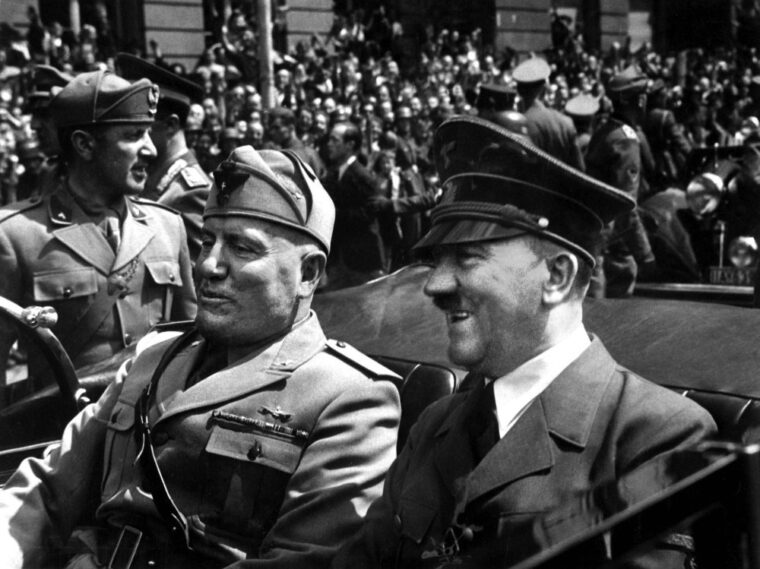 Hitler invaded the Soviet Union. In 1941, Hitler told his generals that he was beginning a “war of ideologies,” a clear indication that he was obsessed with the goal of destroying Communism. To invade the largest and second-most populated nation on Earth was insane. His entire campaign against the Soviet Union was intended for the pure Aryan race to conquer the racially subhuman Communists. How he expected Germany, with a population of about 80 million to defeat a nation more twice as populous and more than 20 times in land mass, was a clear indication of his flawed ideology. Hitler had failed to learn from history, particularly from the catastrophic defeat of Napoleon 150 years earlier. He truly believed the enslaved peoples of Russia would overthrow Stalin. But he failed to understand that the people of the Soviet Union had no more choice in the matter of who oppressed them than did the Germanic peoples. Furthermore, he never understood that the Russian people, oppressed or not, would fight ferociously for their motherland.
Hitler invaded the Soviet Union. In 1941, Hitler told his generals that he was beginning a “war of ideologies,” a clear indication that he was obsessed with the goal of destroying Communism. To invade the largest and second-most populated nation on Earth was insane. His entire campaign against the Soviet Union was intended for the pure Aryan race to conquer the racially subhuman Communists. How he expected Germany, with a population of about 80 million to defeat a nation more twice as populous and more than 20 times in land mass, was a clear indication of his flawed ideology. Hitler had failed to learn from history, particularly from the catastrophic defeat of Napoleon 150 years earlier. He truly believed the enslaved peoples of Russia would overthrow Stalin. But he failed to understand that the people of the Soviet Union had no more choice in the matter of who oppressed them than did the Germanic peoples. Furthermore, he never understood that the Russian people, oppressed or not, would fight ferociously for their motherland.
Operation Barbarossa in 1941 was to have driven into the heart of Russia and taken Moscow. At first the German forces were successful in driving far into the Soviet Union before Stalin’s armies were able to form a strong defense. This further convinced Hitler that his strategies were superior. However, he never considered that his troops might be caught in the grip of a severe Russian winter and had not provided winter clothing for the men, nor winter protection for the tanks and machines of war. Josef Goebbels, the Nazi propaganda minister, was forced to beg winter clothes and blankets from the citizens to be sent to the Eastern Front.
Hitler did not reckon on the Western Allies providing vast amounts of war materiel to Stalin via convoys to Archangel and Murmansk, and that Stalin would move most of his arms industry eastward past the barricade of the Ural Mountains. The Nazi invasion soon became a frozen and deadly quagmire that consumed whole armies. The Red Army could afford to lose thousands of men in stemming the drive on Moscow. But even when his generals were desperately trying to salvage something from the catastrophe, Hitler made the second of his two greatest blunders.
Hitler declared war on the United States four days after the attack on Pearl Harbor. The great majority of Americans believed Japan should be the prime enemy. But Hitler’s ill-timed declaration changed all that. President Franklin D. Roosevelt and Prime Minister Winston Churchill chose to move on Germany first, quadrupling the weight of industry and manpower facing Hitler’s already stretched forces.
In one stroke Hitler had made the sleeping giant turn its angry eyes on Nazi Germany, and there was no way to stop it. But even so, Hitler had managed to further stack the odds against Germany. Within hours of his declaration of war against the U.S., he learned that the Red Army had counterattacked and driven the German forces back. He immediately fired Field Marshal Walter von Brauchitsch and made another critical mistake by taking full command of all the army’s operations in the East.
At that point, with his armies stagnated on the frozen Eastern Front, Hitler might have refocused his military attention to the south and defeating the British in North Africa and the Mediterranean. His efforts to reinforce the armies in the Soviet Union and seize the oil-rich Caucasus resulted in nothing more than the loss of hundreds of thousands of men.
Hitler failed to maximize the use of available resources. Despite having an authoritarian and centrally controlled government, Germany failed to make full use of its armaments industry when it was most critically needed. According to Speer’s Inside the Third Reich, in contrast to the democratic governments of the United States and Great Britain, Germany’s war production was subordinated to consumer products. Having been through the severe privations of the Great War and the depression, Hitler was determined to avoid a repetition that could lead to another revolution. Automobiles and refrigerators were being manufactured alongside fighter planes and tanks.
Compare this to Roosevelt’s immediately putting the U.S. on a war footing and urging American industry to make war production its primary goal.
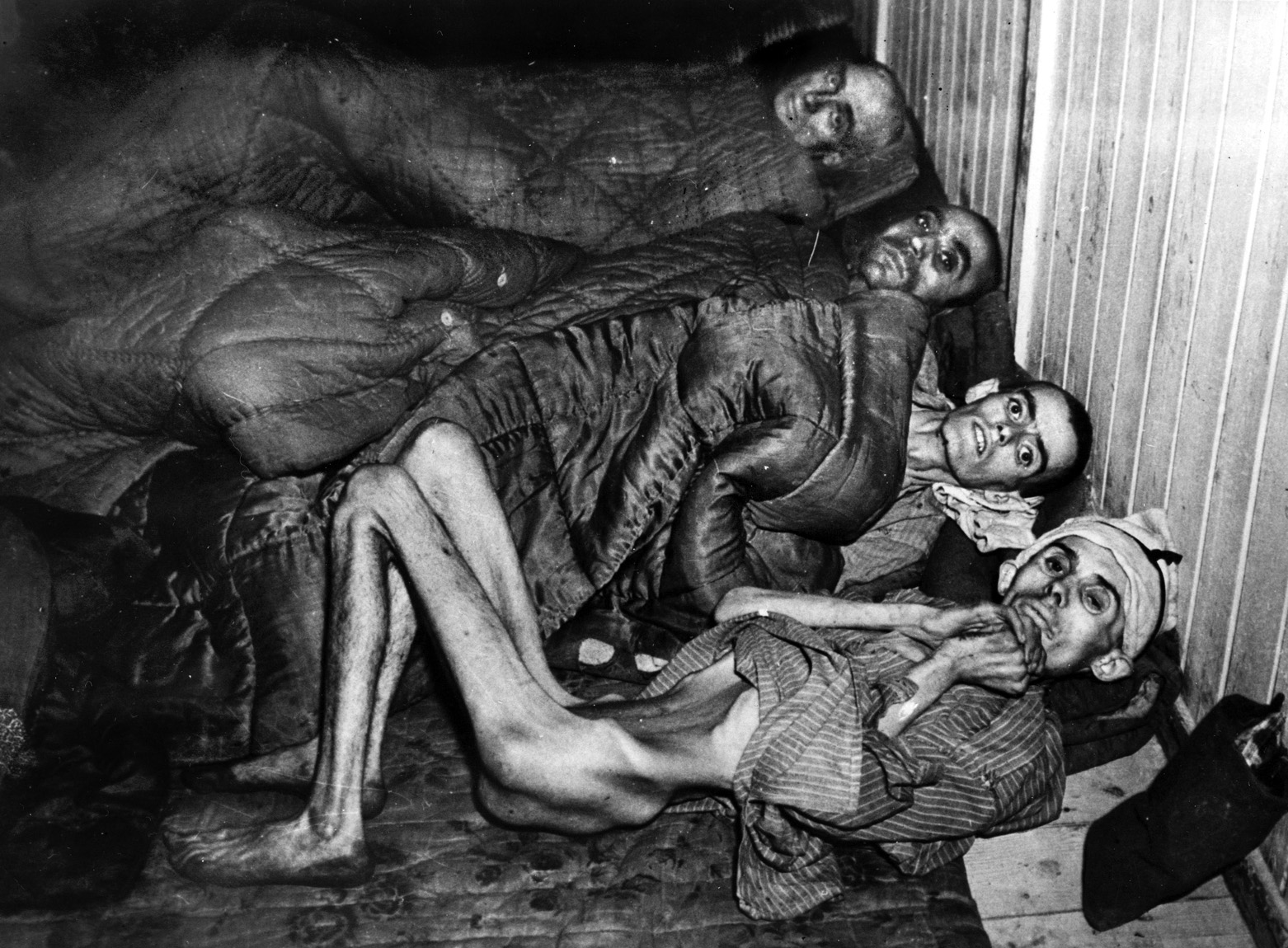
Winston Churchill told the British people that the war would require their “…blood, sweat and toil.”
By 1942, America had turned its full industrial might toward total war against both Germany and Japan. Germany could hardly hold its gains, much less fight off what would soon become the two mightiest military forces in the world. Hitler, in his efforts to keep the German populace from being inconvenienced, put their comforts ahead of the needs of the military.
In Britain and the U.S. rationing was quickly established, and the production of major consumer products either stopped or reduced. The U.S. auto industry did not build civilian vehicles between 1942 and mid-1945, instead throwing its manufacturing capacity into building tanks, guns, planes, and the tools of war. The citizens accepted the rationing of vital resources like rubber, steel, aluminum, oil, and gas.
Ironically, Hitler and the Nazis could not make Germans do what Americans and Britons were willingly doing. In the U.S. and Great Britain women eagerly worked in factories and other important fields, freeing up millions of men for military service. But Adolf Hitler had a deep vein of chauvinism which manifested itself in the role of German women. Instead of utilizing half of the civilian population in the vital war industry, women were expected to stay at home and give birth to the next generation of Nazis.
Hitler’s war effort was not sustainable. The year 1942 was the turning point in the war on both fronts. Midway, the fall of El Alamein, the Soviet siege of Stalingrad, and the looming defeat of the U-boats were the next nails to be driven into the Third Reich’s coffin.
Yet Hitler did not do the prudent thing and withdraw his forces for the inevitable assault on the Fatherland. Instead, he continued the Nazi policy of eradicating Jews from Europe. With so much of his armed forces involved in the genocide, he began moving phantom armies and weapons that only existed in his mind. Super tanks that proved to be useless and a drain on Germany’s weakening war industry were no help except for their diminishing propaganda value.
Hitler continued to order retaliatory air raids and tactical bombing on advancing Soviet forces instead of using the Luftwaffe to deny them fuel and supplies. Speer also tried in vain to dissuade Hitler from useless retaliatory bombing and rocket attacks on Britain. The attacks were pure terror bombing with virtually no effect on the course of the war other than to deprive Germany of much-needed industry and manpower. It took huge numbers of German troops to guard and house the slave labor force for key war industries.
In the end, Hitler was a delusional madman. Between the summer of 1942 and the summer of 1944, the intertwined fates of Hitler and Nazi Germany were sealed. With the D-Day invasion in the West and the Red Army’s drive into Germany from the east, the end would be disastrous and inevitable. Even with his armies, navy and air forces being ground to dust on three fronts, Hitler continued to oversee the genocide of the Jews.
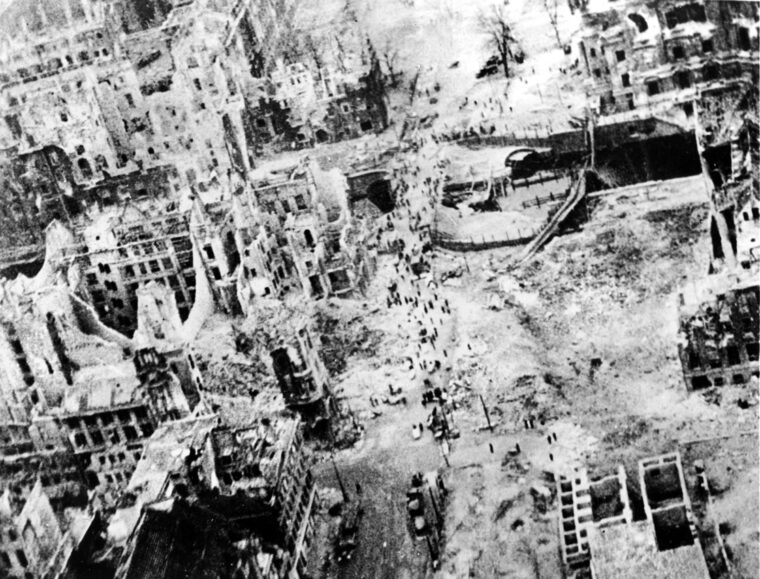
The political house of cards he built in 1934 was falling around him. He had staffed his cabinet with ambitious, unintelligent, greedy and power-hungry toadies whose sole aim in life was to be as close to the Fuhrer as possible while stabbing each other in the back. No one could change Hitler’s mind, and no one could replace him. He was the sole demigod, the only decision maker in the entire country. He refused to listen to any general who disagreed with his manic pronouncements.
Hitler had buried Germany into a pit that grew deeper and darker with each passing day.
The German people had no voice, no means of removing the Fuhrer from his throne. Even as fleets of U.S. Army Air Forces and RAF bombers were raining steel death on German cities and huge armies were closing in on three sides, no German citizen dared raise his voice in protest against the Nazi government. Germany was totally and irrevocably clutched in the ever-weakening grip of the Nazi tyrant in Berlin.
The underlying reason for the loss of the war was that Hitler was more focused on the eradication of the Jews and Communism than in military victory. If he had stopped before the invasion of Poland, Germany would likely have been left alone by the appeasers. But he unleashed the forces that would ultimately lead to Germany’s defeat.
Germany lost the war because its sole leader made the most mistakes.
Author Mark Carlson has written on numerous topics related to World War II and the history of aviation. He is the author of the book Flying on Film—A Century of Aviation in the Movies 1912-2012. He resides in San Diego, California.
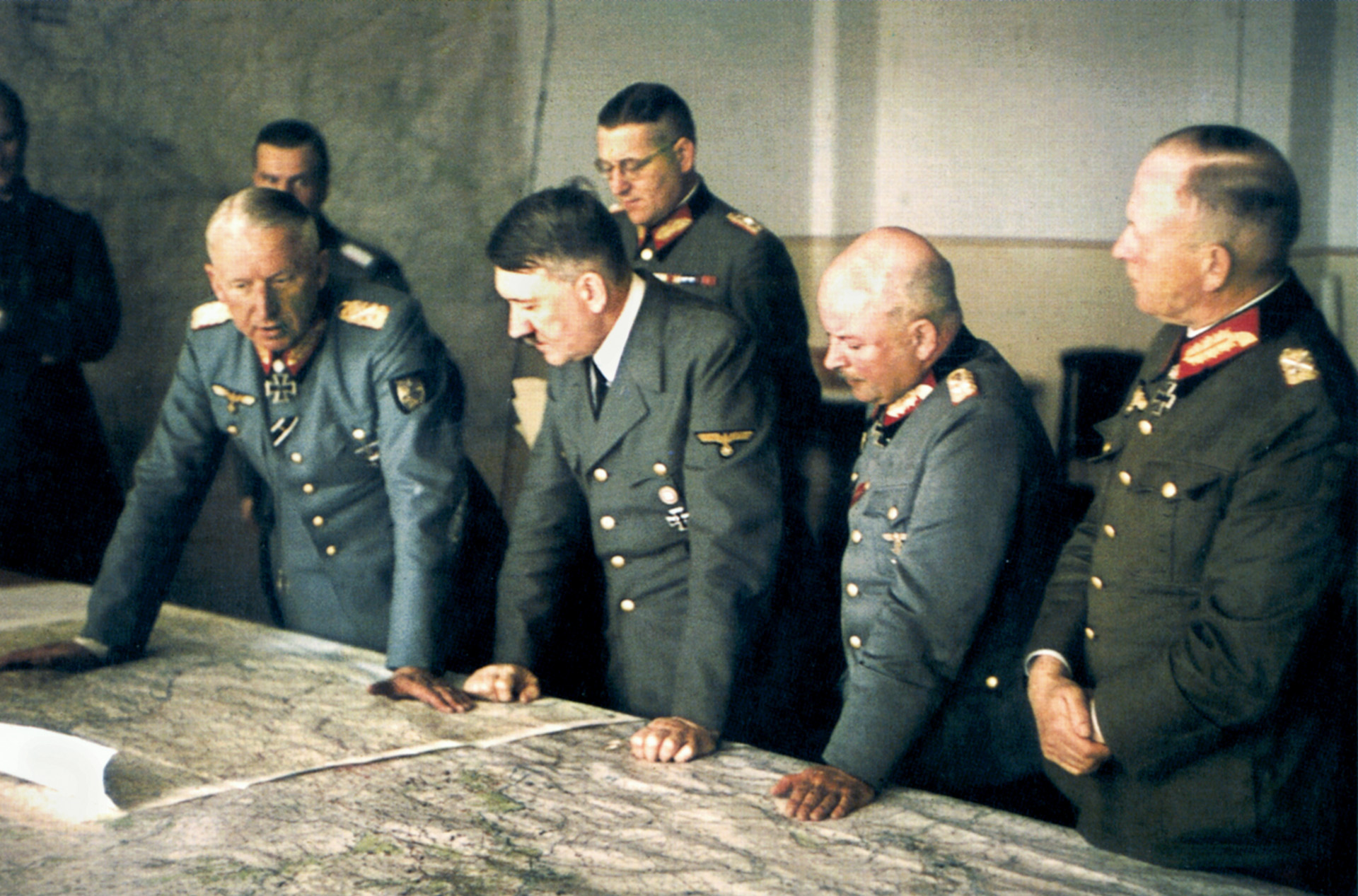
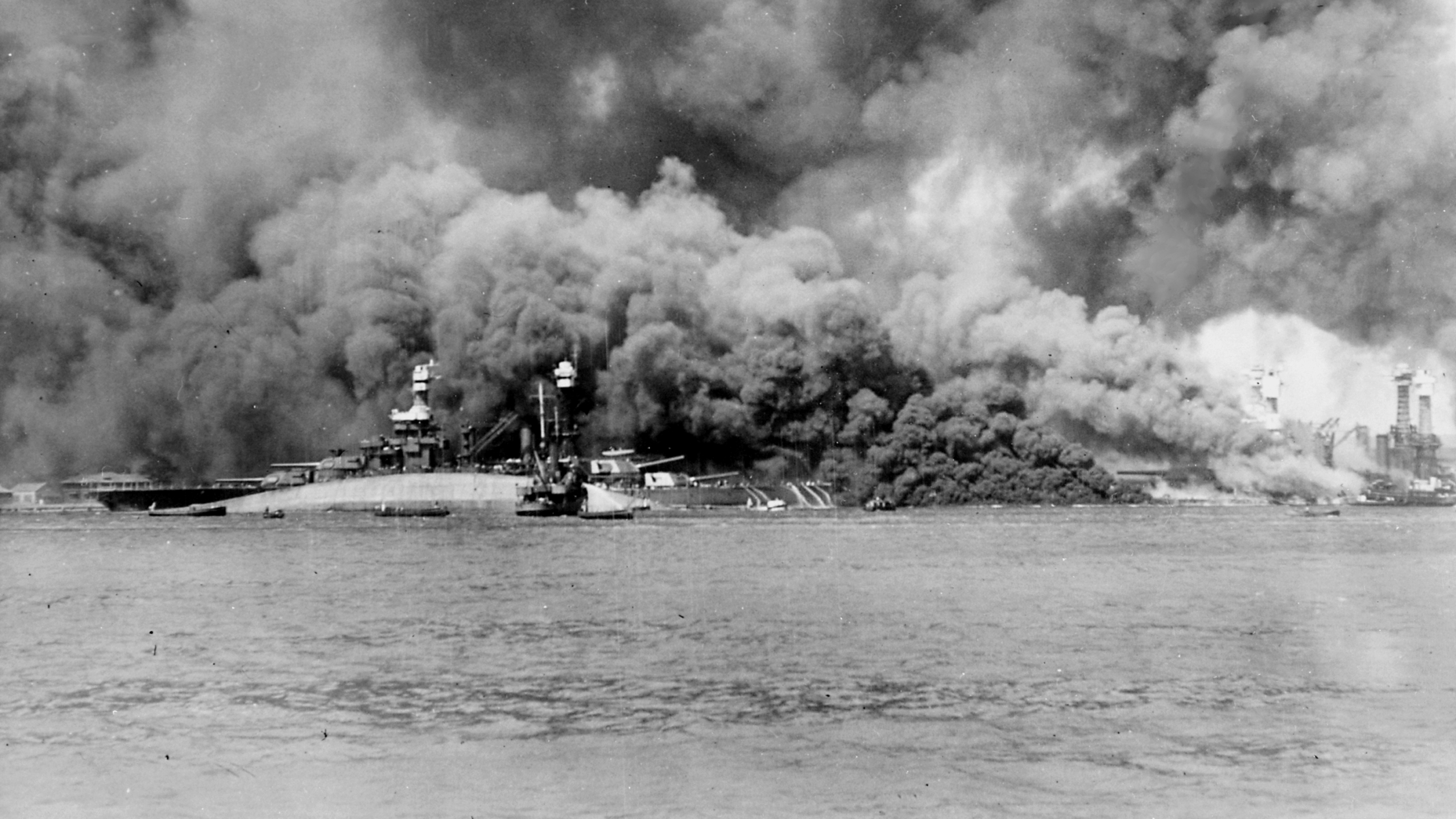

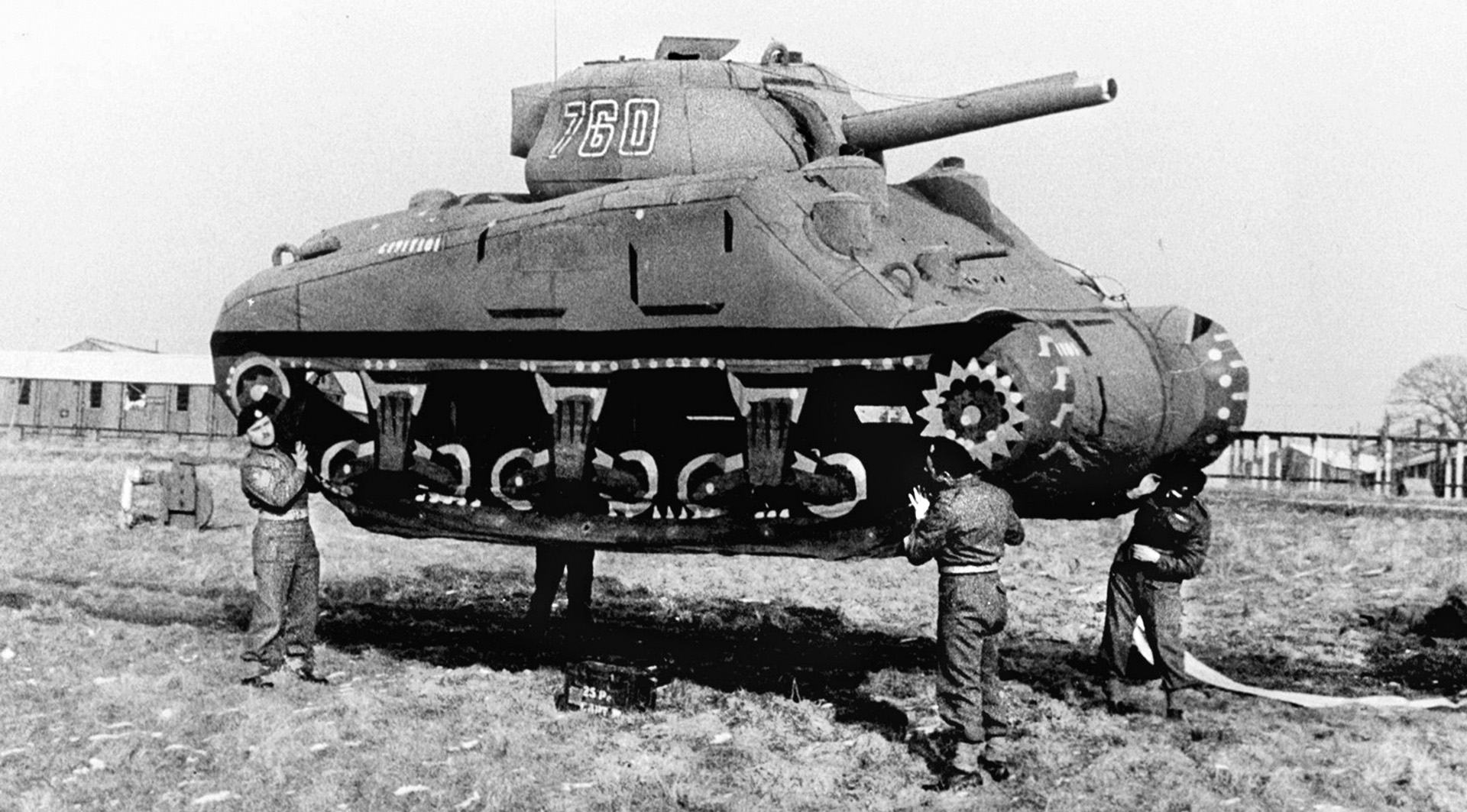
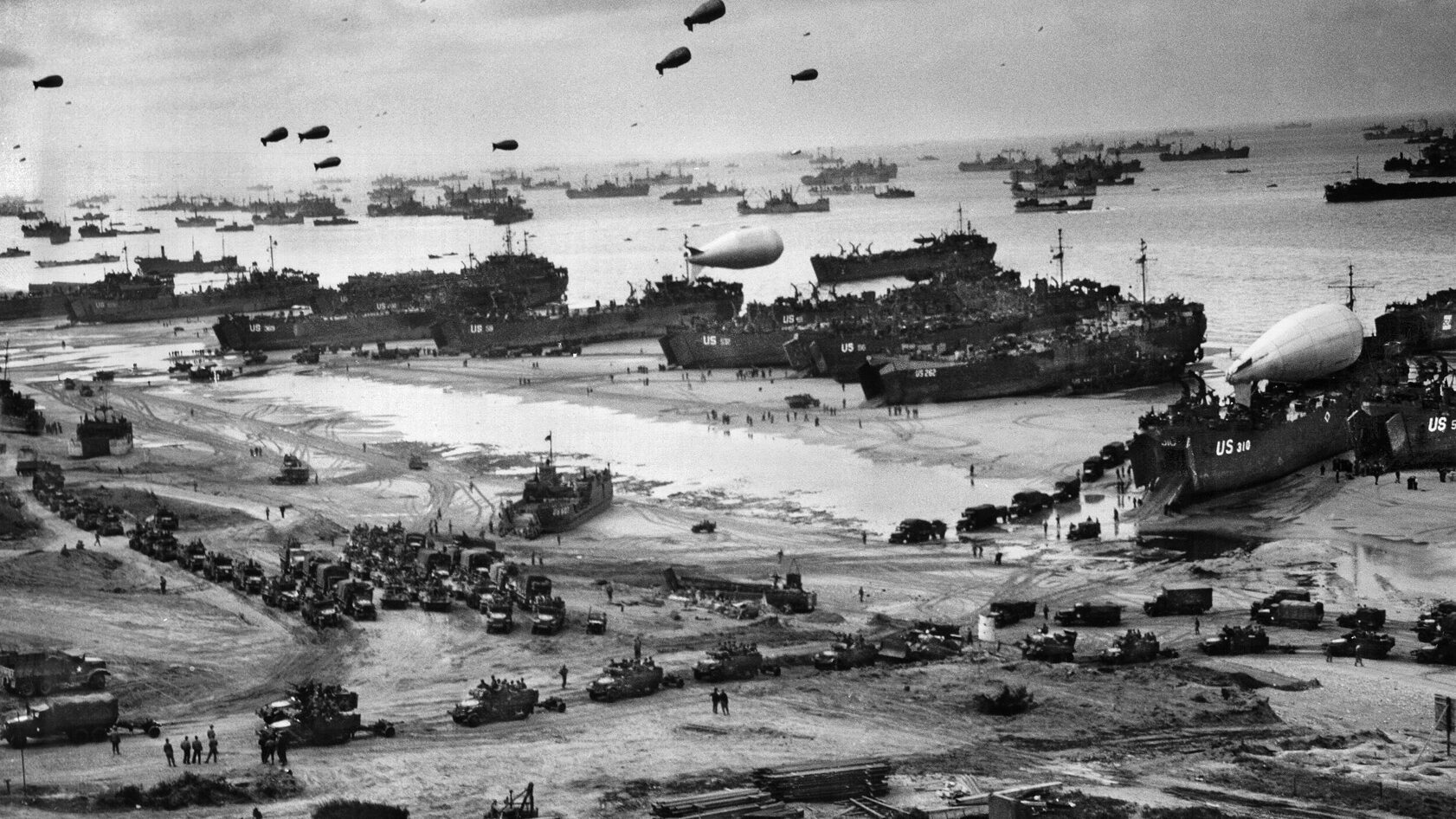
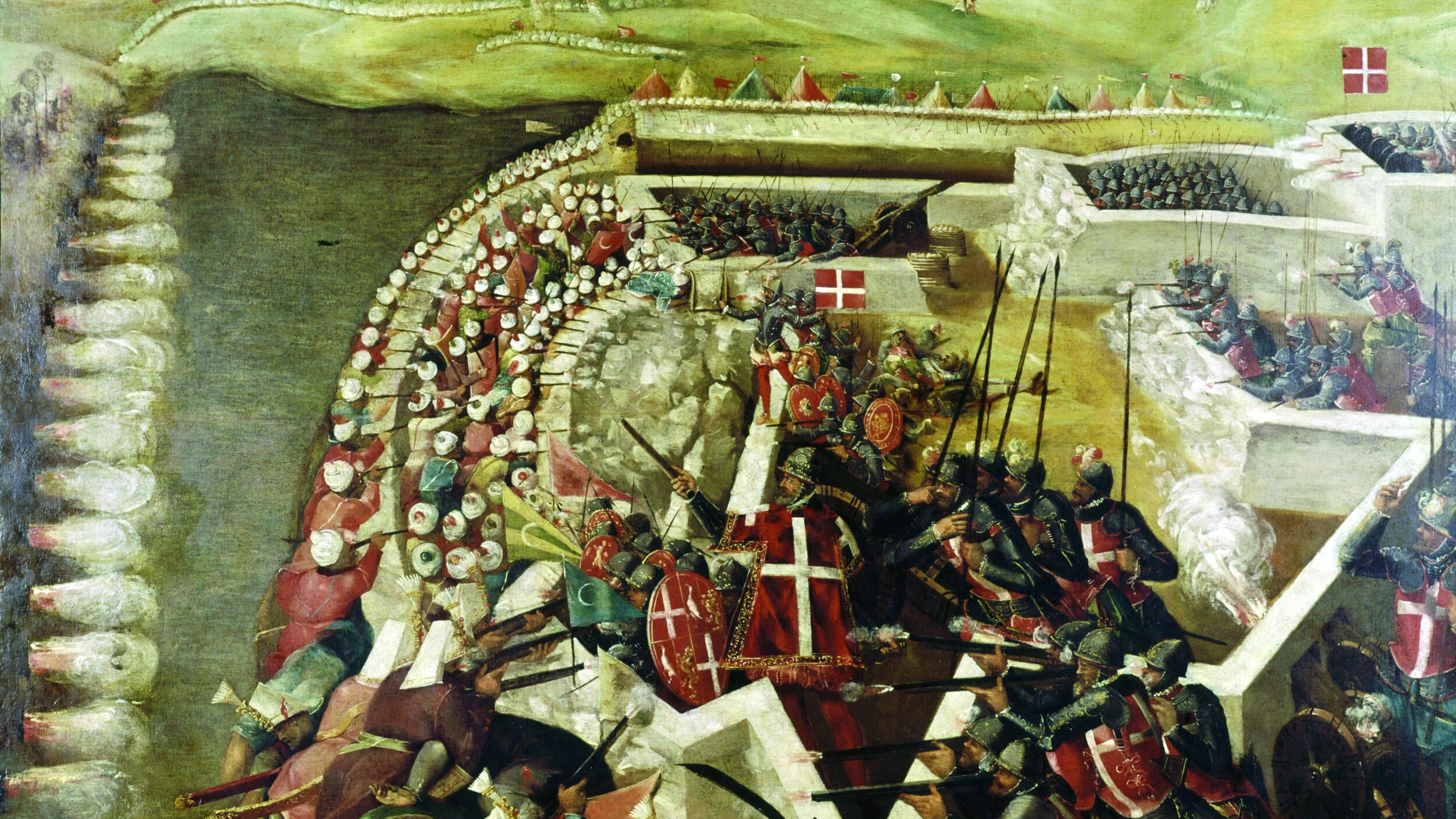
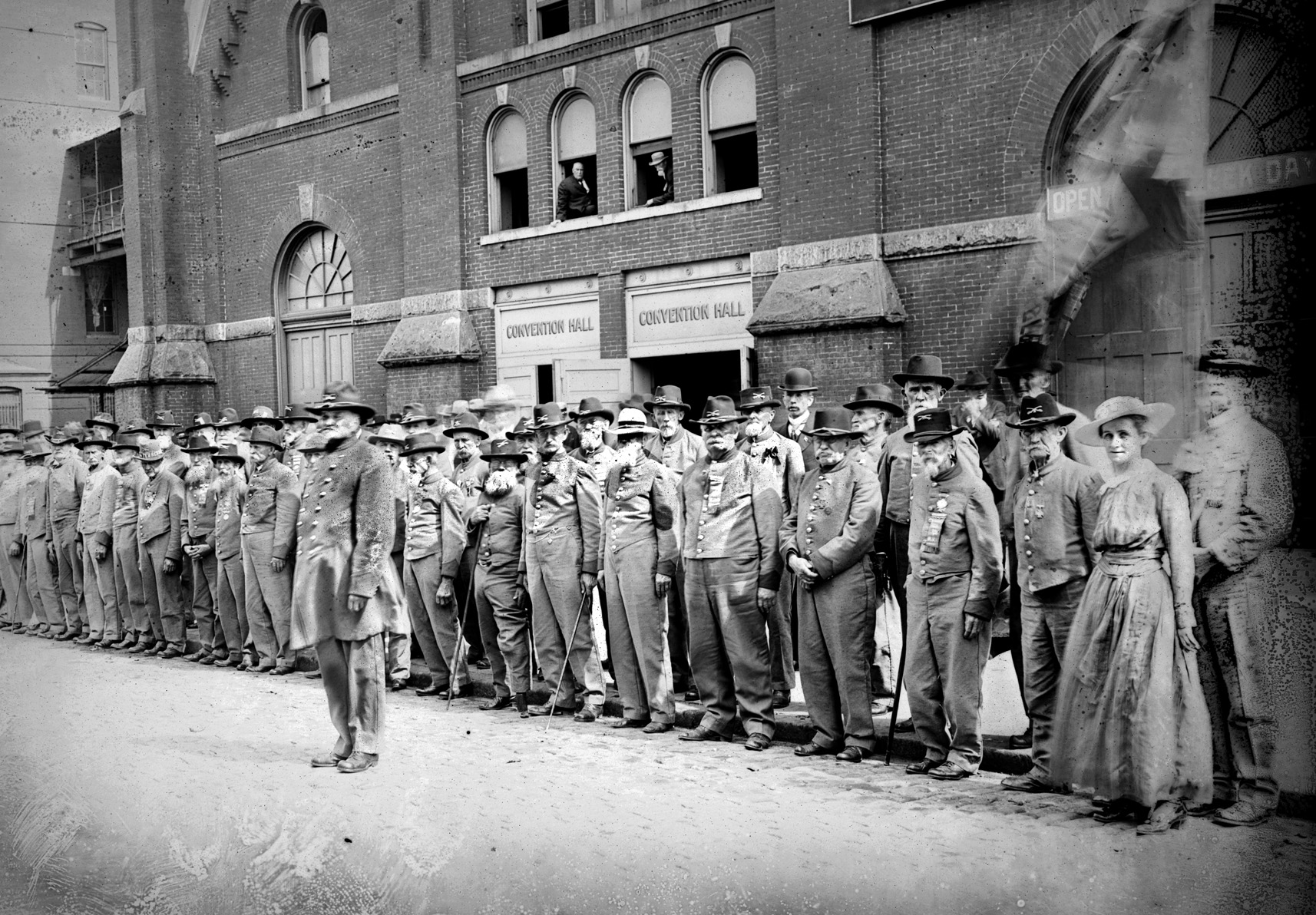
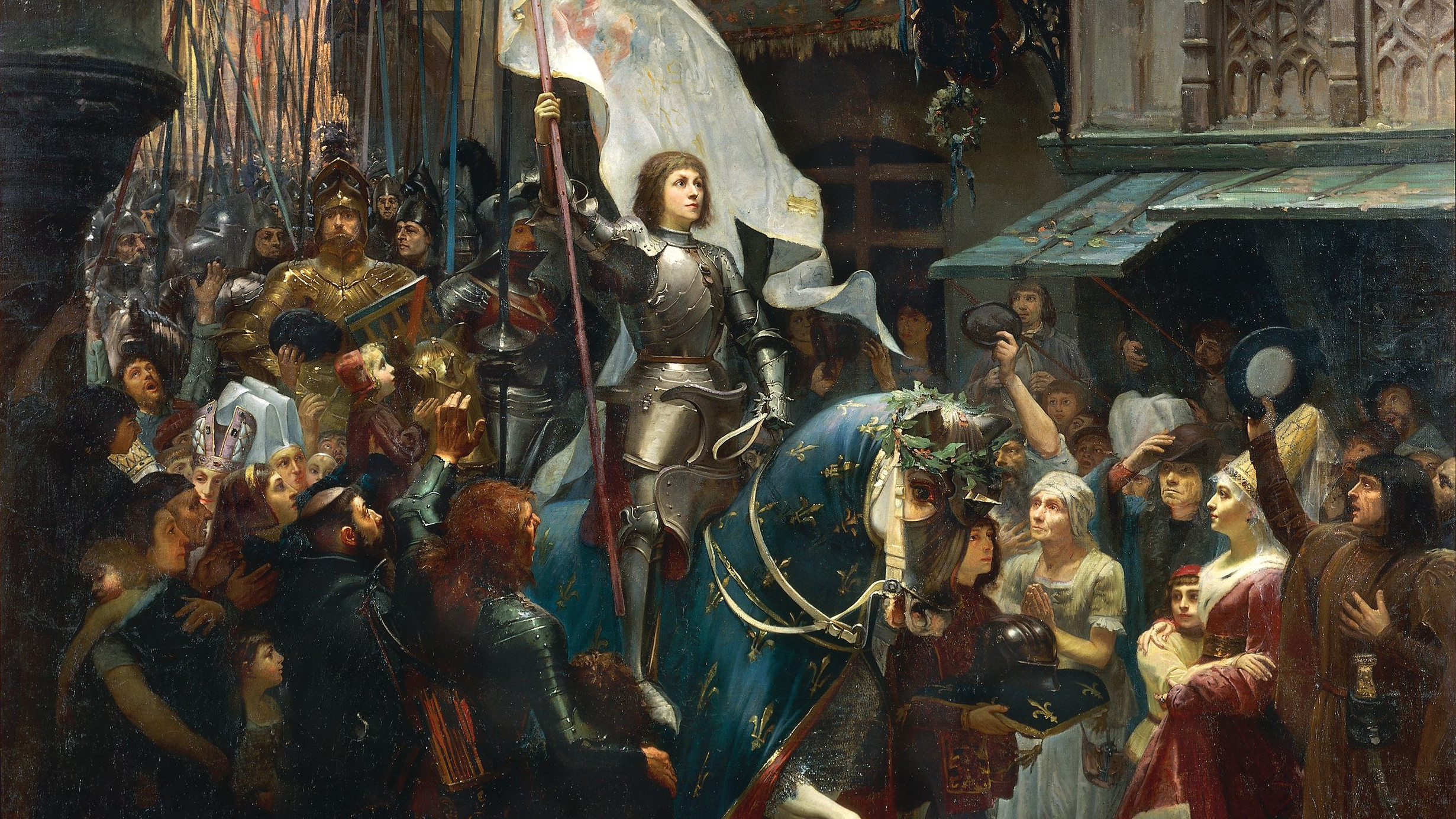

It was a great read. Should have never attacked Russia.
Shows what happens when a maniacal former Corporal gets control of the military and no one stops him, though not for lack of trying several times.